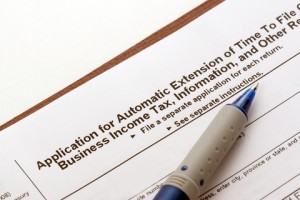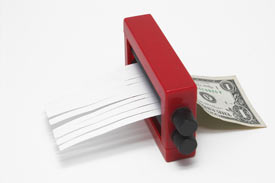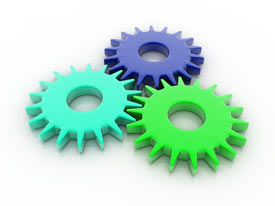 If you’re a home business owner, you’re likely obliged by law to pay federal income taxes on a quarterly basis. Correctly estimating your taxes and paying them on time can help spare you from some very stiff penalties tax collection agencies can impose.
If you’re a home business owner, you’re likely obliged by law to pay federal income taxes on a quarterly basis. Correctly estimating your taxes and paying them on time can help spare you from some very stiff penalties tax collection agencies can impose.
According to federal law, self-employed individuals must pay income and self employment taxes on their income on a quarterly basis. Self-employed individuals are defined as workers who are the owners of sole proprietorship businesses or are independent contractors, are members of partnerships or are otherwise working for themselves, such as owners of part-time businesses.
The self-employed are required to pay income tax and must also pay self-employment taxes. The self-employment tax is a contribution to the Social Security and Medicare programs.
When determining your income tax and self-employment taxes, you’ll first need to determine your net profit or loss from your business activity. This figure is determined by deducting your business expenses from revenues generated by your business. If your income is greater than your expenses, than the difference is considered net profit and is added to your total income for tax purposes. If you post a loss for the tax year, you deduct the amount of your loss from your total income. The amount of loss you can deduct from your income may be limited, however.
If your net earnings from self employment add up to at least $400, you’ll have to report them on your income tax return.
Making Quarterly Payments
You’re not allowed to pay all of your taxes at one time at the end of the year. Instead, you must pay estimated taxes on a quarterly basis.
The IRS website provides a form on its website called Form 1040-ES, which you or a tax professional can use to help calculate your estimated taxes. You will need your previous year’s tax return to fill out this form.
You can pay your quarterly taxes by mailing them to the IRS or using the Electronic Federal Tax Payment System.
Due dates for quarterly taxes change each year, but always fall in the same month. Quarterly taxes are due in April, June, September and January.
 Penalties
Penalties
If you don’t make estimated tax payments as required, you’ll have to pay interest on the amount you owe and you will also be hit with a penalty. The IRS has a formula to determine the penalty which changes fairly regularly, but in many cases the penalty can be quite stiff.
See A Pro
Don’t be crazy. Get professional help. Seeking the advice of a tax professional can keep you from overpaying taxes and can also keep you from getting into trouble with the IRS for underpaying taxes. Professionals can help you determine what your expenses are, and make sure you claim every expense that you’re entitled to. They also may be able to point out some tax breaks or credits you may not be aware of, such as tax breaks for health insurance expenses you may incur as a self-employed individual.









